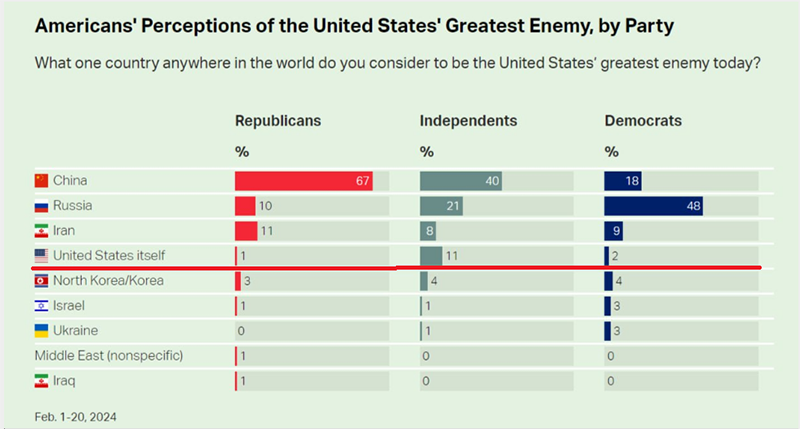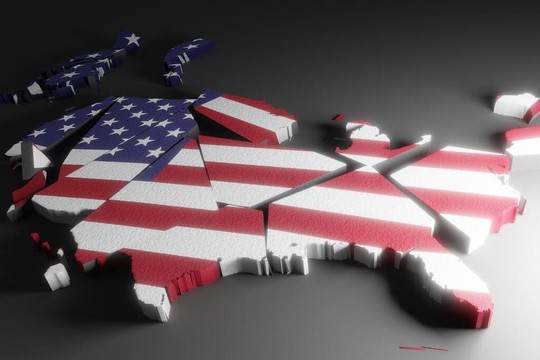Regardless of who wins November’s presidential election, America is likely to see new outbursts of protest, revealing a pessimism and anger that threatens to become the norm in US politics. The nation must come together to recreate a middle ground, writes Michael Auslin, a PhD at the Hoover Institution, Stanford University.
As Donald Trump fights to become only the second president to avenge a re-election defeat, it is no small irony that 2024 also marks 50 years since Richard Nixon resigned the presidency in disgrace. No two presidents have been as reviled as Nixon and Trump. Yet the defeats of Nixon in 1974 and Trump in 2020 did little to restore trust in the constitutional republic. If anything, their departures resulted in more partisanship and cynicism. Regardless of who wins this November, America is likely to see new outbursts of protest, revealing a pessimism and anger that threatens to become the norm in its politics.
The half-century since Nixon gave his final salute from Marine One on the South Lawn witnessed America’s triumph in the Cold War and the so-called ‘hyperpower’ moment, but also 9/11, decades of struggle in the Middle East, the great recession, the George Floyd riots, and Covid. All have seemed to turn Americans further against each other. If left unchecked, today’s normalisation of cynicism and demonisation of political opponents may threaten the very structure of its political system.
All presidents receive their fair share, and more, of brickbats, but Nixon and Trump surpassed all others in the hatred they both dished out and received. Both men revelled in their opposition to Washington and American elites. Both showered disdain on their opponents, Nixon often in private, Trump as publicly as possible. In response, the media and the political class questioned Nixon’s sanity and claimed Trump not only wanted to be a dictator but suffered from dementia.
When Nixon and Trump left office, their successors proclaimed that an era of national recovery had begun. Yet disillusionment soon set in, as the administrations of Presidents Ford and Carter saw economic distress at home and instability abroad, not unlike the challenges currently overwhelming Joe Biden. What was supposed to be a time to reassert American values instead led to widespread disappointment and further criticism of a failing American system. Paradoxically, at the same time, the presidency only became more imperial over the half-century from Nixon to Trump, with chief executives bypassing Congress on everything from waging war to the use of executive orders.
For all the sturm-und-drang over presidents and elections, these passions are, at base, reflections of a deeper crisis of democracy, perhaps of modernity itself. As the AP poll cited above indicates, America’s current malaise is a potent mixture of many sources: for some it is the fear of falling behind economically, for others that of seemingly rampant urban crime; some decry the undermining of traditional values, while others believe a theocracy will take away their rights; some warn that the educational system has become a factory for indoctrination, while others assert that racism pervades all aspects of society. To many, the country’s problems seem so intractable as to be unsolvable, leading to a nonstop ‘age of rage’ driven by a sensationalised media and extremes on both sides, whose battles are further eroding civil society and undermining faith in democracy.
None of this is to downplay the serious and real differences of policy that Americans face, but, as knowledge of civics declines, the extremes become more powerful, attacking the accommodation and compromise necessary for constructive, civil intercourse. And presidents have become lightning rods rather than symbols of unity, competence, and national resolve.
Are there measures that could be adopted to repair the civic fabric? Should the study of civics and history be reinvigorated? Institute mandatory national service? Establish a domestic version of the Peace Corps? All are laudable ideas and perhaps would help increase mutual understanding and toleration. Perhaps not, for political cynicism and ill-will seem close to a tipping point. The US is ever more split on the questions of ‘whose history, whose civics?’, and without resolving those, national service or other palliatives will be powerless to bring the nation together.

read more in our Telegram-channel https://t.me/The_International_Affairs

 12:07 15.04.2024 •
12:07 15.04.2024 •























